Red Flags in Gotham: How NYC’s Leadership Clashes with Capitalist Roots
This blog explores the paradox of progressive or "communist-leaning" leadership in NYC — its origins, consequences, and contradictions — in the context of America's economic crown jewel.-Rafael Benavente
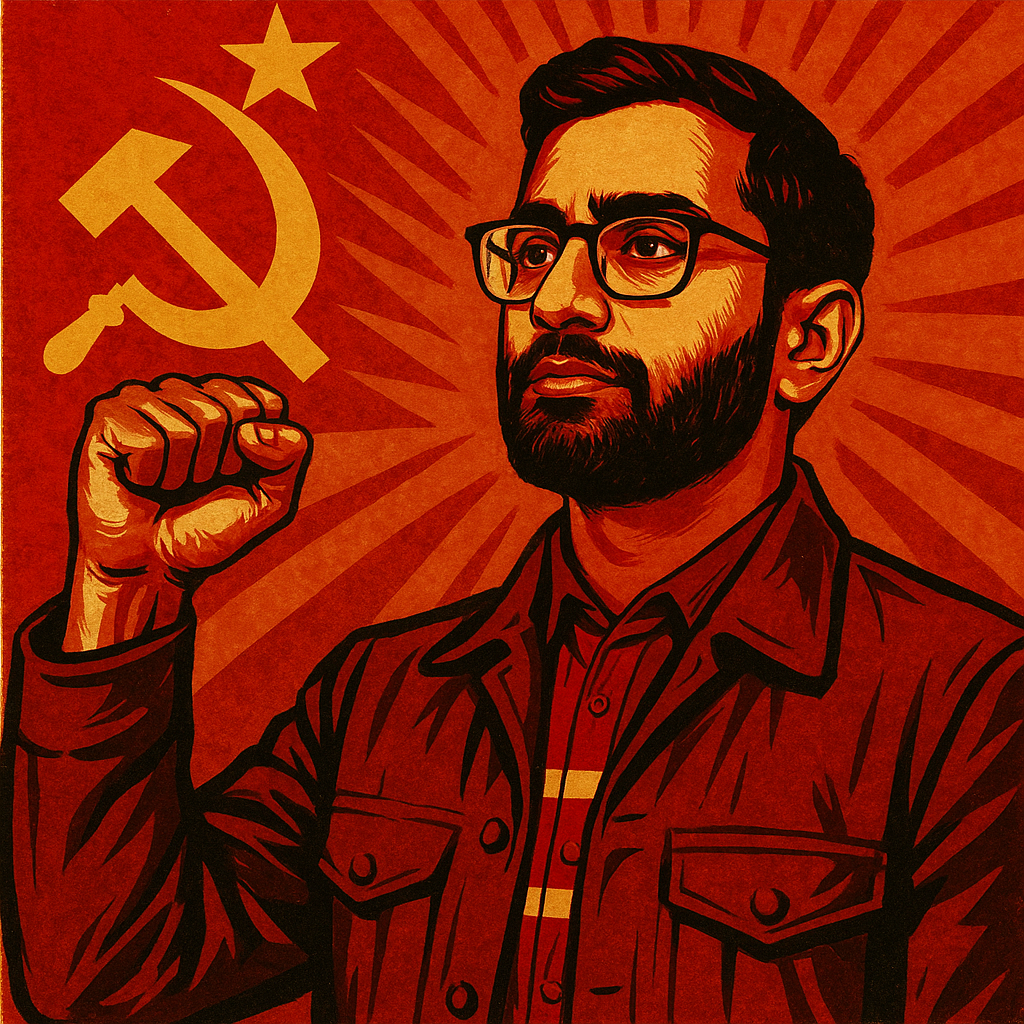
Introduction: Irony in the Empire of Wealth
New York City — Wall Street, the birthplace of modern finance, the playground of hedge funds, billionaires, and brand empires. It is the global capital of capitalism. Yet, in a twist that seems almost theatrical, some of its political leadership over the years has championed socialist or even borderline communist policies. Critics argue that NYC has become a case study in ideological contradiction: where the rhetoric of wealth redistribution collides with the realities of maintaining a $100 billion city budget fueled by private enterprise.
This blog explores the paradox of progressive or "communist-leaning" leadership in NYC — its origins, consequences, and contradictions — in the context of America's economic crown jewel.
I. The Rise of the “Progressive” Machine
New York’s leftward shift didn’t happen overnight. Since the Bloomberg era, NYC has undergone a gradual political transformation. Enter Bill de Blasio, mayor from 2014 to 2021 — a self-described progressive who once supported the Sandinistas in Nicaragua and ran a campaign explicitly aimed at attacking “a tale of two cities” and reducing income inequality. His policies—expanded welfare programs, rent control pushes, and tax-the-rich rhetoric—were a far cry from the pro-growth, pro-business stances of past NYC mayors like Rudy Giuliani or even Michael Bloomberg.
Eric Adams, while less overtly leftist, has continued policies that seem to carry de Blasio’s torch in areas like housing, equity programs, and policing reforms, often placing him at odds with business leaders and even fellow Democrats.
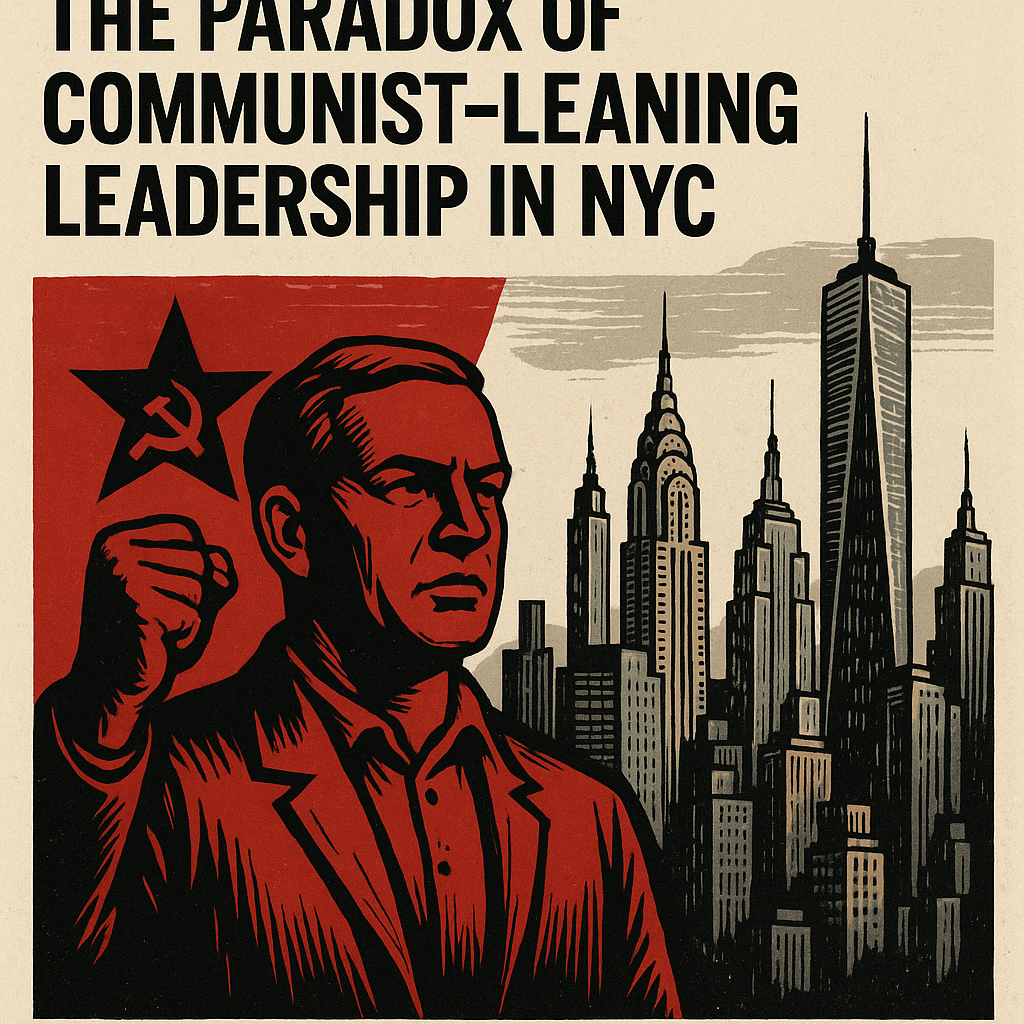
II. Policies That Echo the Far Left
While no mayor has openly claimed communist affiliation, the policies coming out of City Hall have echoed Marxist-style government intervention:
- Massive Public Spending: NYC’s budget rivals that of many countries, with significant chunks directed toward subsidized housing, public health, and social programs.
- Anti-Landlord Agenda: Rent stabilization expansions, eviction moratoriums, and regulatory hurdles have made NYC one of the most difficult places in the U.S. to be a private property owner.
- Redistributive Education and Policing Reform: Pushes to defund police or reallocate resources from traditional institutions to “community-led” models mirror classic leftist strategies of undermining existing power structures.
- Aggressive Taxation: Constant debates about raising taxes on the city’s highest earners — the same people who supply a lion’s share of NYC’s tax base — risk creating a death spiral of wealth flight.
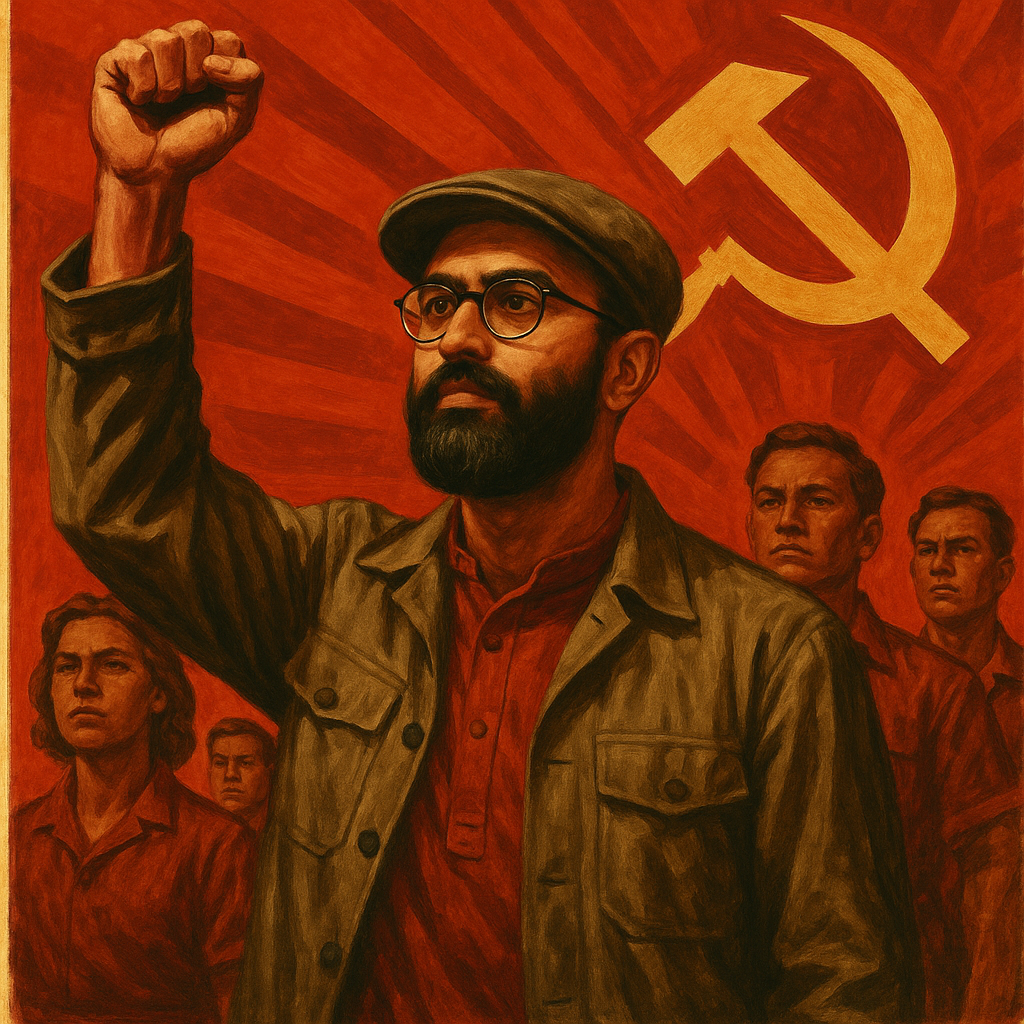
III. The Communist Paradox: Living Red While Needing Green
Here lies the contradiction: New York City cannot function without capitalism. Its wealth is not homegrown by socialist industry — it is imported from finance, tech startups, commercial real estate, tourism, and luxury retail. And yet, many of its leaders propose policies that antagonize the very sectors keeping the city afloat.
Wall Street bankers and tech entrepreneurs pay for the social safety net that left-leaning politicians promote. It’s a paradox: a socialist-leaning city that depends on capitalist wealth to survive. The result is a political tightrope: tax the rich too hard, and they leave. Don't tax them, and you betray your base.
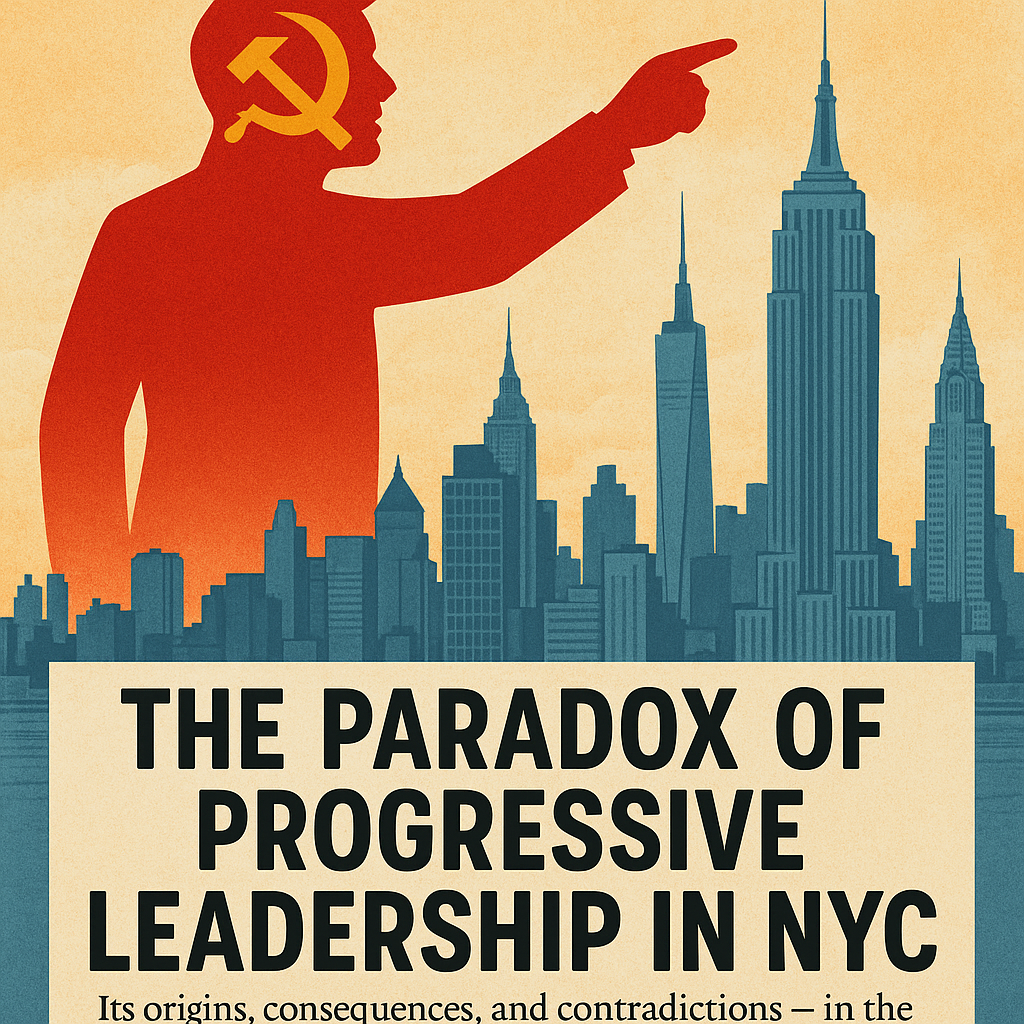
IV. When Politics Trump Pragmatism: Business Backlash
Many NYC business leaders have warned of the growing “anti-business” climate in the city. Real estate investors have pulled projects. Finance giants have opened satellite offices in Miami and Austin. And New Yorkers, tired of crime, taxes, and economic instability, are fleeing to red states in record numbers.
Even long-time Democratic donors have begun to question whether progressive governance is sustainable when paired with the costs of living and running a business in the city. After all, Marxist ideas don't mix easily with IPOs and real estate booms.
V. The Cultural Battle: Identity, Equity, and Ideology
Much of the city’s modern governance is shaped by culture, not economics. The far-left tilt has been bolstered by identity politics, calls for racial justice, LGBTQ+ rights, and climate activism. These are often bundled with economic policies that veer sharply left — such as “guaranteed income” pilots and wealth taxes.
To many residents, especially younger ones, this blend of cultural progressivism and economic redistribution isn’t just acceptable — it’s a moral imperative. For others, especially working-class immigrants and small business owners, it feels like ideology has replaced common sense.
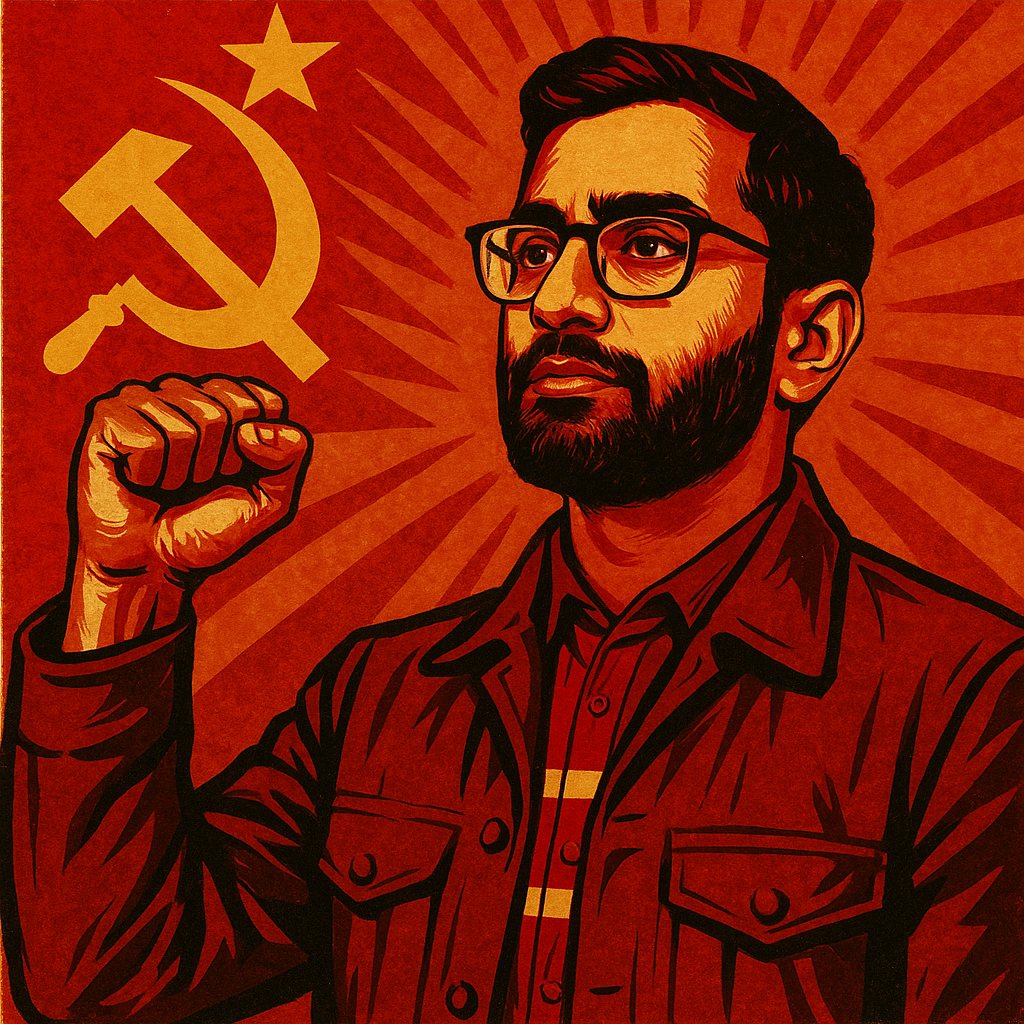
VI. Conclusion: Can Capitalism and Communism Coexist in NYC?
New York City is at a crossroads. Can it remain a beacon of global capitalism while flirting with governance philosophies rooted in wealth redistribution, social engineering, and ideological purity? Or will the contradictions tear it apart?
The city has always survived reinvention — from Dutch trading post to Ellis Island gateway, from crime-ridden in the ’70s to Giuliani’s clean-up, from 9/11 resilience to the post-COVID exodus. But this latest challenge is philosophical — a battle not just for who leads the city, but what kind of city NYC wants to be.
By Rafael Benavente
Author Note / Credits
This blog was written with insights inspired by New York City’s political evolution and the broader ideological tension between wealth and welfare. For more perspectives on governance, public policy, and the economy, check out “The Benavente Brief”.
